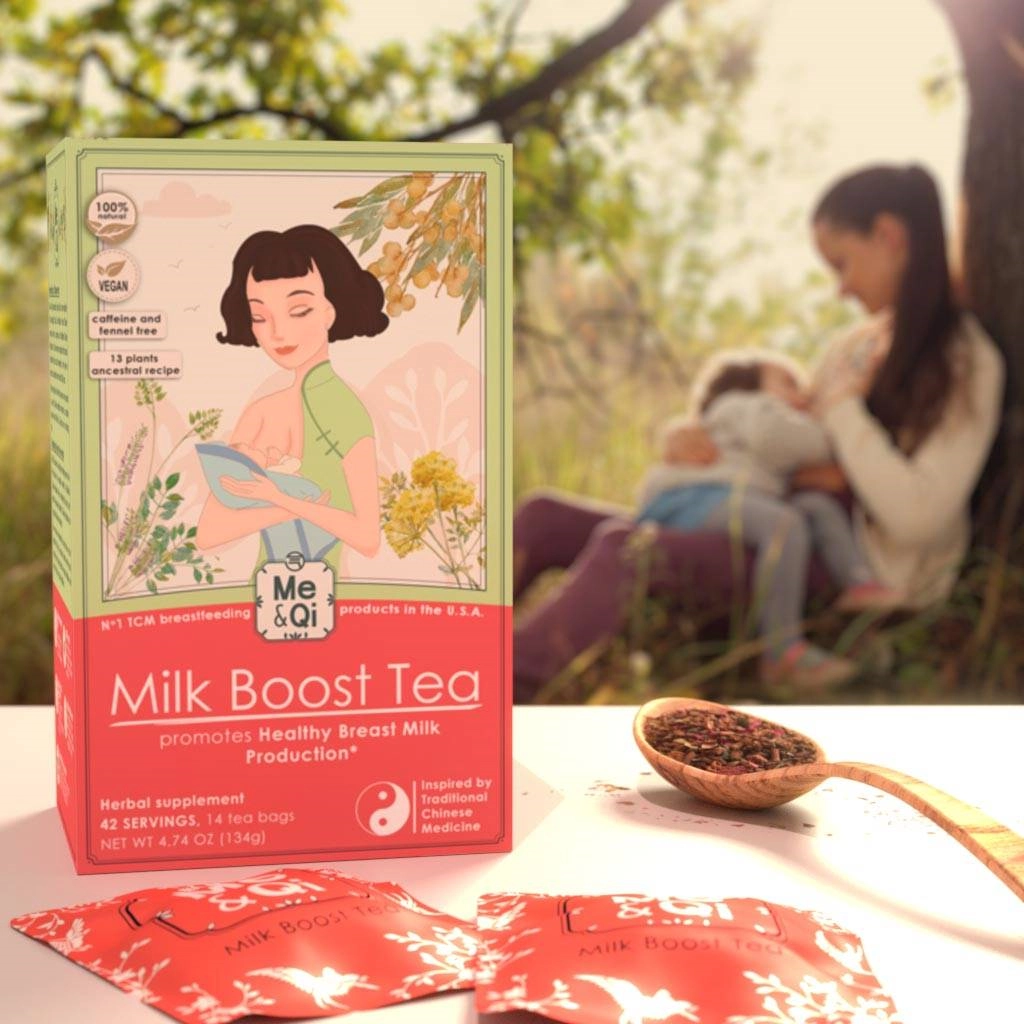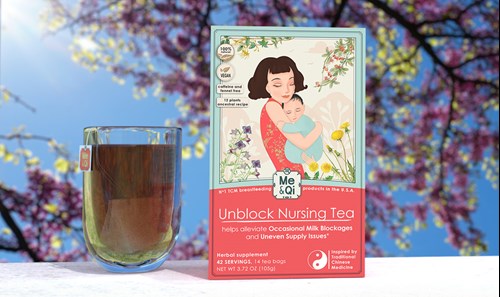Contents
- What Is Breast Engorgement?
- Causes Of Breast Engorgement
- The Four "Patterns Of Disharmony" Associated With Breast Engorgement
- 1. Liver Qi Stagnation:
- 2. Stomach Fire or Stomach Heat
- 3.Blow Breast (Chui Ru)
- 4. Jealous Breast (Du Ru)
What Is Breast Engorgement?
Breast engorgement is when the breasts become sore, hard, hot, bright, tight, painful and swell up. This condition frequently occurs in women in the first three months of giving birth due to an increase in milk formation and blood supply in the breasts. Here are some pictures on the engorged breasts.
It can also affect women who may choose not to breastfeed. That is because these mothers do not regularly empty their breasts before weaning, causing milk to accumulate in their breast ducts.
Most mothers can relieve the symptoms simply by baby suckling or pumping. However, many women can still face difficulties in emptying their breasts due to clogged milk ducts, nipple blebs or cracked nipples. If the situation is not treated properly, breast engorgement can develop into mastitis (about 10%), with symptoms such as breast abscesses, sticky pus discharge, and high fever. Therefore, it is important to manage breast engorgement as early as possible.
Causes Of Breast Engorgement
According to Western lactation experts, some major causes of breast engorgement are as follows:
- Baby Not Latching Well
The milk flow rapidly increases, in the first three days after delivery. If the newborn is still unable to latch properly and drain the milk from breasts, the breasts will feel engorged. The babies' ability to latch on may also become compromised as a result of the engorgement.
- Breastfeeding Sessions Are Skipped
Some feeding sessions are skipped due to various reasons such as physical discomfort, latching issues, or a busy schedule.
- Producing Too Much Milk
If the milk is expressed too frequently, excessive amount of milk exceeds the baby's demand and causes accumulation of milk in the breasts.
- Breastfeeding A Sick Child
If the baby has a stuffy nose, ear infection, or any other disease, he or she can experience difficulties in feeding. This can result in an accumulation of milk in the breasts and causes engorgement.
- Weaning Your Baby Too Rapidly
The breasts require time to adjust and decrease milk supply gradually. To lessen the probability of having breast engorgement, adopt a weaning strategy that fit your schedule.
The Four "Patterns Of Disharmony" Associated With Breast Engorgement
Traditional Chinese Medicine (TCM) views breast engorgement from a different perspective. It has a long history of documenting this postpartum condition in gynecology books. Simply put, the fundamental causes of breast engorgement are four body 'disharmonies':
1. Liver Qi Stagnation:
- Other symptoms that can happen spontaneously with breast engorgement: Depression, Mood swings, Irritability, Anger, Uneven milk supply.
- Theory:
If a nursing mother tries to hide her negative feelings (like postpartum depression, anger, etc.), her Qi (similar to energy in the Western) will rise up and get stuck in the Liver, which is connected to the breasts through the Liver Channel. In this case, the milk ducts or nipple orifices will be clogged up, leading to the formation of lumps or nodules in the breasts. Therefore, during breastfeeding, the mother's breasts feel hard and swell up. She also experiences a strong and sharp pain.
If the Liver Qi stagnates for a while and isn't treated, toxic Heat builds up. It can eventually lead to Mastitis with symptoms such as abscesses, pus, blisters, and high fever.
- Breast Engorgement Treatment:


In the West, it is often suggested that the mother massages the nodules or lumps in her breasts to soften them during nursing. Experts also recommend using hot compresses right before feeding to get the milk flowing faster and cold compresses between feedings to ease the sharp and shooting pain. The mother is also strongly advised to breastfeed or pump more frequently in order to eliminate the swelling and clogged milk ducts.
All of the above breast engorgement home remedies, though, only help partially. The fundamental solution is for the nursing mother to invigorate the Stagnant Liver Qi by being in a more positive mood. Getting used to her new life better, telling her friends and family about her struggles, letting people help with the baby, etc.
Also, Milk Boost Tea is a great herbal recipe that helps Qi move through the Liver. It has a lot of herbs that move Qi, like Flowering quince fruit (Mu Gua), works on the Liver.
2. Stomach Fire or Stomach Heat
- Other symptoms that can happen spontaneously with breast engorgement: Thirst, Red eyes, Dry mouth, Malar flush, Uneven milk supply
- Theory:
If a nursing mother eats too much Hot food, she is more likely to have breast engorgement. The 'hot' here doesn't refer to the actual food temperature, but the nature of the food according to Chinese Medicine. For example, greasy foods such as French fries, beans, cheese, red meat, chocolate, and rich sauce are often ‘hot'. While some foods such as seafood, white meat, many of the fruits and vegetables are considered 'cooler'. If an excessive amount of 'hot foods' are consumed after giving birth, they build up in the Stomach and create Heat and toxins.
The nipples are on the Stomach Channel. The Stomach Heat flows to the breasts and nipples through the Channel and obstructs the milk ducts, causing the breasts to feel swollen, red, and painful with boils, nodules, and lumps. This issue, if not adequately addressed, can lead to Mastitis, which is characterized by blisters, pus, abscesses, and fever.
- Breast engorgement treatment:

Avoid eating too many heavy and hard-to-digest foods during breast engorgement. Try simple but nutritious foods such as salad, red meat, soups, porridge and etc.
Also, Unblock Nursing Tea is a good formula for this pattern since it contains cooling herbs like honeysuckle flowers, chrysanthemum flowers, and dandelions that remove toxins and Heat.
3.Blow Breast (Chui Ru)
- Other symptoms that can happen spontaneously with breast engorgement:
- Theory:
Blow Breast" (Chui Ru) occurs when Phlegm accumulates in the feeding baby's diaphragm and makes his or her breath burn hot. This Heat is then transferred to the mother's breasts through mouth contact, resulting in lumps or nodules that make it difficult for milk to flow. In TCM, Heat often results in hardness.
- Breast engorgement treatment:
Breast massage during breastfeeding might be helpful to smoothen the breast lumps or nodules in order to relieve engorgement pain. Cold compresses between feedings are also advised to reduce redness and pain for engorged tits.
On top of that, Unblock Nursing Tea is also effective in this situation. When the mother consumes this dietary supplement, 'cooling' herbs of the formula not only benefits the mother but are also transferred to the newborn via breast milk. Thus, the 'Toxin-Heat' within the newborn can be reduced.
4. Jealous Breast (Du Ru)
- Other symptoms that can happen spontaneously with breast engorgement: Thirst,Uneven milk supply
- Theory:
According to Chinese Medicine, Jealous Breast' (Du Ru) is caused by an infant's inability to suck breasts because of an inaccurate feeding position or improper nursing technique. As a result, the milk does not flow adequately, causing swollen, painful, and hot breasts. If the symptom is not treated, it worsens and becomes mastitis.
In turn, Qi and Blood, which are the main vital substances needed to make milk, get trapped. This is why the mother will also show Qi and Blood Stagnation symptoms, such as an unusual thirst.
- Breast engorgement treatment:
Make sure the newborn sucks the breast appropriately. Try different feeding postures to ensure that the whole breasts are emptied equally. Massaging the breasts also helps remove accumulated milk and alleviate engorgement pain.
Finally, Unblock Nursing Tea can be used for this situation as it helps to remove Qi and Blood Stagnation.

